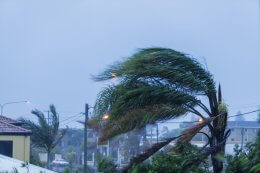
Technology has made it easier for us to pay and manage our energy bills, but Australians are being warned to be vigilant as several worrying scams continue to target energy customers.
Ahead of Scam Week 2021, the Australian Competition and Consumer Commission (ACCC) has revealed that phishing scams have swindled Australians out of more than $3.5 million so far this year.1
Australians reported more than 54,500 phishing scams to the ACCC between 1 January and 30 September 2021,1 with most of these scams being delivered by phone (46.6%), text messages (36.1%) and emails (14%).2
Phishing scams commonly target energy customers and occur when a scammer pretends to be from a legitimate business (such as your energy provider or distributor) and attempts to trick you into handing over your personal information.2 Others try to trick you into handing over money, by sending you a fake energy bill to pay.
“What we’re seeing is scammers contacting energy customers via mail, phone, text message, social media or email with messaging, branding and links that look legitimate,” Compare the Market’s Energy Expert and General Manager of Utilities Brett Mifsud said.
“It’s becoming more difficult to spot a scam from legitimate messaging, which is why we’re asking Australians to be extra cautious.”

How to spot an energy scam
While scams are becoming more convincing and sophisticated, Mr Mifsud said there are warning signs to look out for.
“If you suspect you’re dealing with a scammer or fraudulent message, it’s best to contact your energy provider directly,” Mr Mifsud said.
“Never click suspicious links or hand over any personal information unless you’re 100% sure you’re dealing with your actual provider. And remember – if something seems too good to be true, it’s probably fake.”
Here are his top tips to avoiding energy scams:
- Check that your account number matches the one shown on your bill. If there isn’t one, it’s not a real bill and could be a scam.
- Is the bill from your current provider? Some scammers don’t know your provider and send mass scam emails to many in hopes of catching people out.
- Beware of messaging that doesn’t include your full name or details. If a message is vague and doesn’t include any information specific to you, such as your name or address, there’s a chance it’s been sent to many people and could be a scam.
- Watch out for spelling errors or mistakes. Mistakes can happen, but if you receive a text or email that seems a little off or doesn’t make sense, it might not be legitimate.
- Be mindful of the websites you’re being directed to. Ensure the websites you’re being asked to visit are authentic. If you’ve been asked to provide your energy bill or energy account details, it’s worth contacting your provider directly.
- What are you being asked to download or click? Do you know what you’re downloading or where links in text messages or emails are directing you to? Where possible, download files from the provider’s official website or contact them directly.
- Report suspicious activity. If you think you’ve received a fraudulent message or fallen victim to a scam, report it to your energy provider and ACCC’s Scamwatch website. Also contact your bank or credit card company immediately if you think your details have been compromised, as they may be able to freeze accounts or stop unauthorised transactions.
The recent scams targeting Australian energy customers
There have been several worrying energy scams doing the rounds in 2021. While they manifest and target you in different ways, the end goal is to steal your information or money.
Here are some recent scams that have been detected in Australia.
Energy bill discount scam sent to AGL customers
Energy retailer AGL recently alerted customers to a scam where fraudsters pretend to be from a legitimate third-party company and offer to pay a customer’s bill at a reduced price.3
In this case, customers unknowingly pay the scammer what they think is a discounted fee, only to realise later that none of the money has been paid to AGL.
Scammers are also contacting customers through WhatsApp, which AGL doesn’t use as a legitimate communication method.
“Unfortunately, scammers are known for targeting Australians who are doing it tough and this scam is a classic example of that,” Mr Mifsud explained.
“If you’re ever struggling to pay your energy bills, contact your energy provider directly and they may be able to offer a payment plan, bill smoothing or other repayment solutions.”
Fake job offers target Energex customers
Queensland energy distributor Energex recently warned Australians to beware of a scam that targets jobseekers with fake job offers for roles that don’t exist.
In this case, scammers contact people at random with fake employment opportunities. The scammers ask people for personal identification and even payments to process the job application.4
“Sadly, scammers are getting more creative with how they target people and this scam is an example of how people are being tricked into handing over their details,” Mr Mifsud explained.
“In most cases, companies will advertise jobs on their official website, so keep this in mind if you are searching for a position within the energy industry. You’ll rarely be asked to pay a fee for a job application to be processed.”
Synergy alerts customers of fake emails
Western Australia provider Synergy recently advised customers of a phishing email that attempts to steal credit card details.5
The emails use Synergy branding and prompt customers to click a link that takes them to a bogus website, where they’re asked to provide their credit card details.
“As we see all too often, fraudsters use branding as a way to trick customers into handing over their details,” Mr Mifsud said.
“Always pay extra attention when opening emails, as scammers are relying on you to slip up. If in doubt, access your account directly from your energy provider’s website or phone them directly for assistance.”

Can energy companies doorknock or attempt to sell me plans over the phone?
According to the Australian Energy Regulator (AER), it’s legal for energy providers to try and sell you plans over the phone or by doorknocking in some parts of Australia. However, in Victoria, there are plans to phase out door-to-door sales and cold-calling by the end of 2021.7 The Victorian Government banned door-to-door sales for solar businesses in September.
In other areas, energy providers can only call between 9am and 8pm Monday to Friday or between 9am and 5pm on a Saturday.6
Energy providers can also visit your home between 9am and 6pm Monday to Friday or between 9am and 5pm on a Saturday.6
If an energy provider salesperson comes to your home, they must:
- Show you their identification
- Identify their name and the company they work for
- Explain the offer and provide a written copy of the contract
- Provide you with an Energy Price Fact Sheet, which details the terms and conditions of the contract.6
“It’s important to note that if you ask an energy provider salesperson to leave, they cannot return for 30 days and must leave immediately,” Mr Mifsud said.
“Keep in mind that scammers can target you through this method. You should never feel bullied into purchasing plans from doorknockers.
“Always ask for proper identification or purchase energy plans directly through a provider’s website or legitimate service like Compare the Market.”
Sources
Images via Shutterstock
- Australian Competition and Consumer Commission – ‘Scam Statistics – showing phishing stats for 2021’ – Accessed 02/11/2021
- Australian Competition and Consumer Commission – ‘Phishing’ – Accessed 02/11/2021
- AGL – ‘Announcement – 6 September 2021: Energy Bill Discount Scam Alert’ – Accessed 02/11/2021
- Energex – ‘Energex warns of scam ripping off vulnerable job seekers’ – Accessed 02/11/2021
- Synergy – ‘Scam alert: Beware of fake ‘Synergy’ emails’ – Accessed 02/11/2021
- Australian Energy Regulator – ‘Energy Marketing – what are your rights?’ – Accessed 02/11/2021
- Premier of Victoria – ‘New rules for energy retailers to protect households’ – Accessed 05/11/2021







